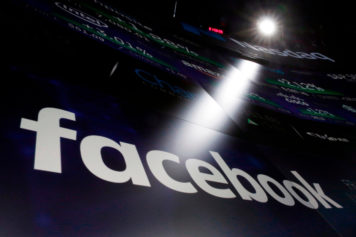Facebook Inc. (FB), the biggest social networking site, posted a record surge after reporting sales that topped analysts’ estimates, allaying concerns over its ability to make money from mobile ads.
Facebook advanced 23 percent to $23.94 at 9:36 a.m. in New York. Through yesterday, the stock had fallen 49 percent since an initial public offering in May.
Ads delivered to people on mobile devices generated about $150 million during the quarter, or 14 percent of all advertising revenue. That compares with about $10 million in the second quarter, according to an estimate by Brian Wieser, an analyst at Pivotal Research Group. Chief Executive Officer Mark Zuckerberg is showing early success with the more than a half dozen services unveiled since March that are designed to help businesses woo social-network users on tablets and smartphones.
“Mobile problem? What mobile problem?” Wieser said. “It’s nothing short of remarkable.”
Sales rose 32 percent to $1.26 billion during the third quarter,Menlo Park, California-based Facebook said yesterday in a statement. That compares with the average estimate of $1.23 billion, according to data compiled by Bloomberg. That also matched the growth rate of the second quarter, snapping a streak of slowing sales increases.
Profit excluding costs such as stock-based compensation and related payroll taxes was 12 cents a share in the third quarter. That compares with the average estimate of 11 cents a share.Facebook had a net loss of $59 million, or 2 cents a share, compared with profit of $227 million, or 10 cents, reflecting a larger provision for income taxes.
Moving ‘Quickly’
The company had lost more than $40 billion in market value since holding the largest Internet IPO on record as investors fretted that it won’t quickly ramp up mobile-related sales.
Arvind Bhatia, an analyst at Sterne Agee & Leach Inc. in Dallas, had predicted that only 5 percent of Facebook’s ad sales would come from mobile.
“They still have a long way to go to prove…
Read more: Bloomberg


